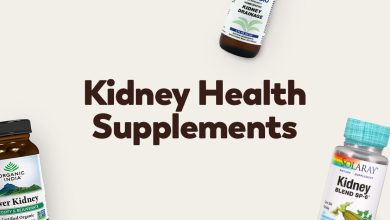Top 7 Best Supplements for Athletes to Boost Your Performance

Several supplements can enhance your exercise performance and recovery, whether you’re an athlete, a weekend warrior, or just trying to get the most out of your exercises. No, anabolic drugs or steroid precursors are not the topics at hand. We’re talking about ergogenic aids, substances like meals and pills that can help you perform better during physical activity or competition. We’re only going to discuss the supplements that have enough evidence behind them to truly make a difference, even if many on the market make the promise to boost performance or recovery. Before considering any new supplement, talk to your doctor, especially if you’re also taking prescription medicine. Charlie Johnson fitness review can also help boost your performance.
What Are Supplements for Sports?
Your body and mind may benefit from legal sports supplements before, during, and after exercises. Supplements are meant to add to a healthy diet rather than replace it.
They are available in a variety of forms, including powders, capsules, tablets, and gels, and were created to:
- Reduce nutrient deficits
- Support dietary requirements, such as protein
- Reach fitness objectives
- Boost physical performance
here are several different types of sports nutrition supplements:
- Acids Amino
- Vitamins\ minerals
- Herbs\ botanical
- plant and food concentrates
Your goals and your preferred sport will determine the type of supplement you might require.
SEVEN Supplements to Improve Athletic Performance
Beetroot juice
An abundant source of antioxidants is beets. However, their high nitrate concentrations—converted to nitric oxide to widen blood vessels—may enhance blood pressure and blood flow to the heart, muscles, brain, and other organs. It has been demonstrated that consuming beetroot juice before working out can reduce the muscle weariness brought on by intense exercise.
Tea leaf extract
We enjoy sipping a green tea, particularly before working out. By burning more body fat for fuel, research employing green tea extract over a lengthy period (10 weeks) found that it is advantageous for enhancing endurance capacity. About four cups of green tea a day’s worth of extract from the beverage was employed in the study.
Triglycerides with a medium chain (MCTs)
MCTs, or medium chain triglycerides, have become popular among athletes who want to boost their energy levels and raise their capacity for endurance during strenuous activity. Athletes on high-protein, low-carbohydrate diets can also use it as an alternate energy source (through nutritional ketosis). MCTs can also be swiftly recruited during post-exercise recovery to promote muscle growth and stop muscular deterioration. One should take roughly 1/4 teaspoon of MCT (particularly C8 MCT oil, which is pure caprylic acid) numerous times daily. Start with a modest MCT dose and gradually raise it as tolerated because they can produce nausea and stomach pain.
Creatine
Any weightlifter would probably tell you that creatine is their preferred dietary supplement for peak performance. Creatine studies have revealed that resistance/strength and high-intensity interval training are its best applications. Supplementing with creatine during strength or resistance exercise can enhance lean body mass, strength, and overall power. The commonly suggested regimen is divided into two periods, each with a recommended dosage: the loading and maintenance phases. It is advised that the athlete take 20 grammes of creatine each day for four to five days during the loading period. It is recommended that the athlete takes in 1 to 2 grammes of creatine per day when in the maintenance phase.
Caffeine
It has been demonstrated that the caffeine in coffee, espresso, tea, and energy drinks enhances exercise performance by lessening feelings of exhaustion. Caffeine is also associated with adrenaline activation, fat mobilisation, and muscular contraction. Even though coffee has a slight diuretic impact, getting enough water and electrolytes will counteract it. Caffeine tolerance varies greatly from person to person, with over-consumption frequently resulting in elevated heart rate and jitteriness. Always start slowly and avoid energy drinks in favour of coffee or tea.
Yogurt protein
Consuming protein after exercise can aid muscle repair and recovery because it supplies crucial amino acids needed to maximize protein synthesis. Compared to casein or soy protein, studies demonstrate that whey protein supplementation results in more significant increases in muscle mass, fat mass, and superior improvements in strength. For healthy persons without liver or renal problems, whey protein is safe. Dehydration risk might increase if 2.5g/kg of body weight or more is exceeded.
Juice from tart cherries
According to studies, tart cherry juice can minimize muscular damage, stiffness, and inflammation throughout the healing process after both strength training and cardio. It has also been demonstrated to aid with endurance training before exercise. Additional studies have revealed that tart cherry juice, a safer alternative to non-steroidal anti-inflammatory drugs, reduces post-exercise discomfort.
Wrapping up:
Several supplements can enhance your exercise performance and recovery. We’re only going to discuss the accessories with enough evidence to make a difference truly. Before considering any new supplement, talk to your doctor, especially if you’re also taking prescription medicine. We hope this article will help you with this information.




